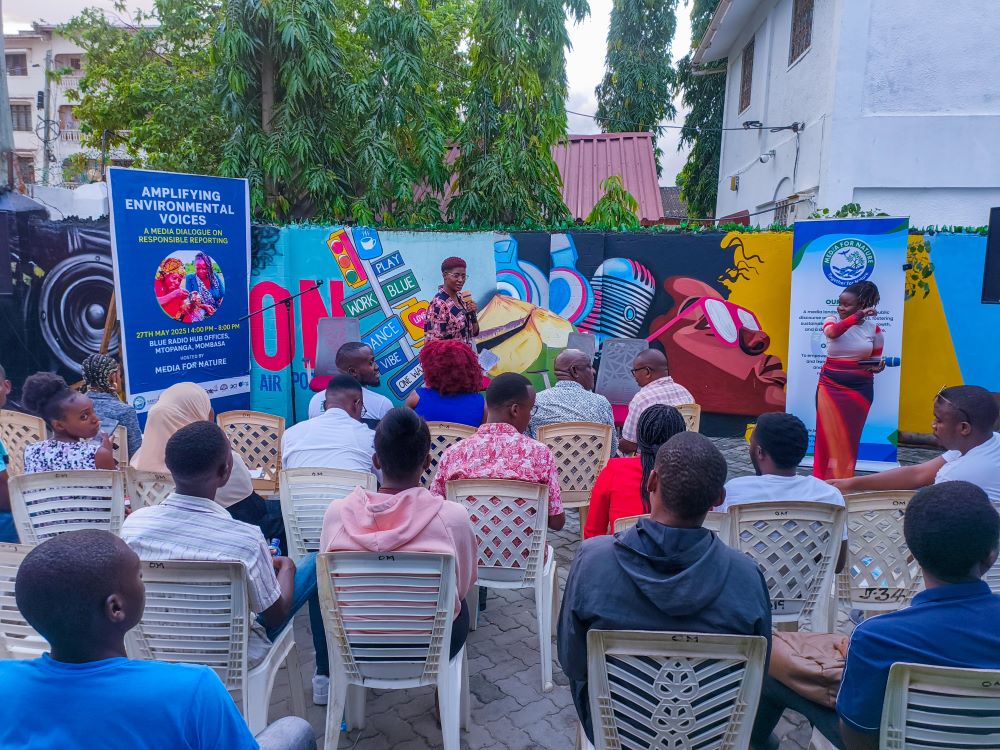
The Media Council of Kenya (MCK) has called on journalists to prioritise professionalism and impact in environmental reporting, cautioning that failure to do so could misinform the public on vital issues affecting their daily lives.
“Accurate and balanced reporting on environmental issues is crucial. You’re communicating with audiences who need clear, reliable information,” said MCK Mombasa Regional Coordinator Maureen Mudi during a dialogue on responsible environmental storytelling at the Blue Radio Hub in Mtopanga, Mombasa.
CEO of Media for Nature Mazera Ndurya urged journalists to shift from episodic disaster coverage to everyday stories of environmental change that shape communities’ futures.
“Environmental reporting isn’t just about headlines during crises. It’s about connecting communities with their environment and holding decision-makers accountable,” he said.
Gilbert Were, CEO of Blue Radio, echoed the need for local engagement, stressing the media’s role in amplifying grassroots stories.
“At Blue Radio, we believe local media must provide a platform for stories that matter, especially in regions like the Coast, where environmental challenges impact lives daily,” he said.
Speakers also highlighted tree planting as a powerful climate action, urging journalists to inspire community involvement through stories of mangrove restoration and urban greening, portraying it as a sustained commitment to ecosystem health and climate resilience, rather than a one-off event.
Organised by Media for Nature in collaboration with Blue Radio, the event united scientists, journalists, researchers, and climate communicators to underscore the media’s vital role in amplifying environmental voices, particularly in coastal Kenya, where rising sea levels, mangrove degradation, and extreme weather patterns are growing concerns.